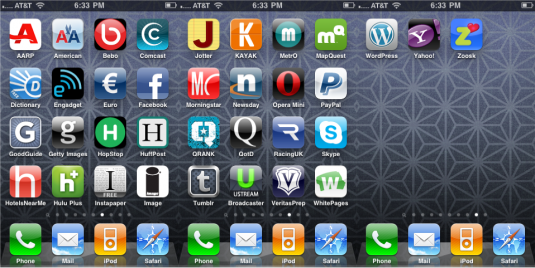Jason Calacanis is an outspoken and unfiltered entrepreneur. Calacanis founded Mahalo, co-founded Weblogs, Inc. which later sold to AOL, co-founded The LAUNCH conference, host of This Week in Startups, founder of Open Angel Forum. Calacanis is famous for his industry rants on Jason’s List mailing list, most recently ranting about Facebook privacy mishap, the lack of commitment from Generation Y, and pay to pitch outfits. Over the last year I have collected a few choice quotes from Jason Calacanis blog posts, mailing list, and podcast. If you want more Jason Calacanis quotes be sure to take a look at the Quotable Calacanis 2009.
These people come here, they are brilliant. they want to start companies here and we kick them out after college. Or we don’t let them come to college to begin with because they might be terrorist. You know what, I take one terrorist for every 10,000 brilliant entrepreneurs that come to the country, I’ll literary will. I’ll take that risk. And if they are in this country they are more easy to catch than if they are in that country.
This Week in Startups #88
Patents are like nuclear weapons, you never use them but they are nice to have because if you have them people tend to not invade into your country because they are scared of those being dropped on them.
This Week in Startups #88
If you can afford to have the unjustifiable, then you’ve made it. It’s unjustifiable to have a jet. There is no reason to have it unless you are a president or CEO of a very large corporation.
This Week in Startups #72
Wining is altruism. Wining is the best thing you can do for the world. When you win then you can do exciting things to change humanity
the most greatest influences in our society, ultimate when history books are written, are going to be the billionaires that are going to give their net worth to solve very big problems.
This Week in Startups #72
Facebook and Twitter have users. Apple has customers. The difference? Customers give you their credit card number.
Yojimbo!
Winning is altruism, that’s the most beautiful thing you can do for somebody in the world is win!
This Week in Startups #65 Global Meetup
Power never stops shifting, and technology is making it shift faster.
Jason’s List: A Quick Sumner Update July 12, 2010
Look up smarmy in the Web 2.0 dictionary and it redirects to Zuck’s Wikipedia page.
Jason’s List for March 6, 2010
Zuckberg is everything that is wrong with the second generation of the internet: greed and a lack of empathy for internet users.
Jason’s List for March 6, 2010
Participation means nothing, your fulfillment means nothing, nobody care if you are fulfilled, nobody cares if you participated. You were lied to. There is no trophy in life for participation, except your tombstone.
This Week in Startups #47
If you don’t get your shit together Generation Y, it’s over for you. Your standard of living is going to suck cause you know what, your mom and dad are going to die and you know what you are going to have left, nothing, because they mortgaged their houses and they got a bunch of cars and went on big fancy vacations and you get no inheritance Generation Y and you are not hirable. So you are going to fail and you’ll have nothing in life.
This Week in Startups #47
I think Mark Zuckerborg is everything that is wrong with technology today.
TWiST #43 with Andy Smith
This is the the thing that people don’t realize about events, doing good events is as much about how is there as who is not there.
TWiST #43 with Andy Smith
VCs do me a favor if you are working with an entrepreneur, the three most annoying things you can do: number one is to ask about China, number two is to ask about Google, and number three is ask for the deck and the documents for the board meeting two weeks before hand.
TWiST #37 with Phil Kaplan
If you are not annoying some people, you are probably not doing a good job as an entreprenuer.
TWiST #37 with Phil Kaplan
The biggest mistake most new players make at poker is overplaying their hand. They spend so much time thinking of the ways they can win that they forget all the ways they can lose.
The Big Game, Zuckerberg and Overplaying your Hand
Zuckerberg is clearly the worst thing that’s happened to our industry since, well, spam.
The Big Game, Zuckerberg and Overplaying your Hand
People are creating fan pages on Facebook and then paying Facebook to send them traffic. Let me explain this one more time: You’re PAYING Mark Zuckerberg money to send traffic to HIS SITE.
The Big Game, Zuckerberg and Overplaying your Hand
I feel that the law is a way for stupid people getting education about reality it’s the lowest form of education we have you can go to college or the cops can pick you up.
TWiT 248: Drowning In Connectivity
The most frustrating part is not losing a great person–which happens–but rather watching someone with promise set their career back five years in order to have their salary jump ahead by three years.
Red, Jackson, Gen Y & Loyalty
It’s not easy being me. I’ve got a version of tourette’s where instead of yelling obscenities at inappropriate times, I say something brutally honest without regard to my reputation or the other person’s feelings.
Red, Jackson, Gen Y & Loyalty
If you put yourself above the team, you’re out. If you think your “get” is more important than the team’s, you’re out. If you leave after a year, you don’t get a ticker-tape parade and you don’t get celebrated.
Red, Jackson, Gen Y & Loyalty

